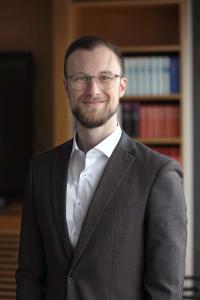Young Omani entrepreneurs inspired by Germany’s economic model - Regional Programme Gulf States
Event Reports
The Sultanate of Oman has been a prime example for successful progress concerning economic and political development in the Gulf. Sultan Qaboos bin Said Al Said introduced his modernisation road map in the 1970s. Since then the GDP per capita has risen from $354 (1970) to meanwhile $23.133 in the year 2012. The transformation into a modern state was backed by the enormous revenues from the oil production, which was to commence in the 1960s. Nevertheless the Sultanate depends on these revenues and their development. More than 60% of the state revenues come from oil. Whereas other Gulf countries can rely on oil for the next decades, the reserves in Oman are decreasing rapidly, drawing to a close. Experts say it might take no more than 15 to 20 years until the oil wells will run dry.
Systematic diversification of the local economy is a fundament of the “Vision 2020“ strategy the Sultanate introduced in 1996. Promoting education and the qualification of the young generation, paired with specific investments in tourism and the trade branch, will eventually create ten thousands of jobs in the private sector. Thus the dependency on oil shall be reduced to no more than 9 % of the GDP within the next six years. The country is currently under a huge demographic pressure to ensure the creation of new job opportunities. More than half of the inhabitants are younger than 25. Furthermore the count of young Omanis entering the labour market outnumbers the available jobs. More than 50.000 new employments have to be created to keep the rate of unemployment around 15%. Facing the economical and social challenges, the country has decided to foster small and medium-sized enterprises. Young entrepreneurship is a central pillar of its commercial policy.
Guido Zakrzewski went to meet representatives of Omani economy and politics (February 15 – 19). The goal was to discuss challenges and chances of a targeted funding of the sector of small and medium-sized enterprises. Mr. Zakrzewski spoke during the „SME Exhibition & Conference“ about basic conditions of targeted funding for SMEs in Germany.
Small and medium-sized enterprises are the guarantor of the German economy, he said. They represent more than 99% of all registered companies in Germany. Furthermore they provide more than 60% of all jobs and contribute to around 50% of the entire net production. At the same time they open chances of economic participation for the working population and ensure distributive justice. Many of these SMEs are successful family businesses and are part of a long tradition in the German middle class; a tradition of private entrepreneurship is not present in Oman. Since the beginning of the oil production and modernisation, the majority has been employed in the public sector or at the very most in the oil industry. Private entrepreneurship was never necessary due to regular state alimentation based on the oil revenues.
Mr. Zakrzewski pointed out that start-ups are essential for the development of a working middle class. In the times of a challenging job market, start-ups are an effective option for young and skilled people. On the one hand, start-ups offer the opportunity for self-determined safeguarding of the future and on the other; they inspire the domestic market through innovation and competition. Management expertise, start-up capital and detailed planning are absolutely necessary to successfully establish a start-up. The interconnection of the educational system and the job market combined with targeted funding of start-ups is the most important measure to prevent an increase of youth unemployment. Mr. Zakrzewski described the dual education system as a successful model to create benefits for enterprises as well as employees. The network of chambers of commerce and industry together with their consultancy and advisory helps to provide excellent promotion of SMEs.
The discussion reviewed the attained successes of diversification, in reference to the “Vision 2020”. However, young entrepreneurs and policy makers also mentioned potential challenges for SMEs in Oman. Particularly, enterprises observe the policy of nationalisation or Omanisation of the labour market critically. While more Omanis are integrated in the labour market, the competitiveness of SMEs suffers, because they cannot draw on the significantly more low-priced foreign workers anymore. Furthermore, there is a lack of appeal for activity in the private economy, since the salaries in the public sector are significantly higher. Exceptions are the national and multinational oil companies and the financial sector. De facto it is hard to find qualified labour. Further on, employment in the public sector is highly esteemed in the society.
Finally, the Sultanate has to decide what type of economy it is targeting in the long term. There is the choice between an economy creating growth through import substitution or by exporting on the global market. If this decision is made, coherent targets can be set in reference to the “Vision 2020”. They will unfold their entire potential if coordinated. Oman is already drafting a follow-up strategy, named “Vision 2040”. Identified challenges and advices indicated during events like the SME-conference should be taken into consideration. Thereby, a well-structured and effective commercial policy can be pursued.













